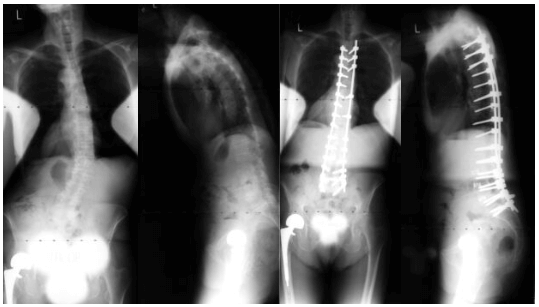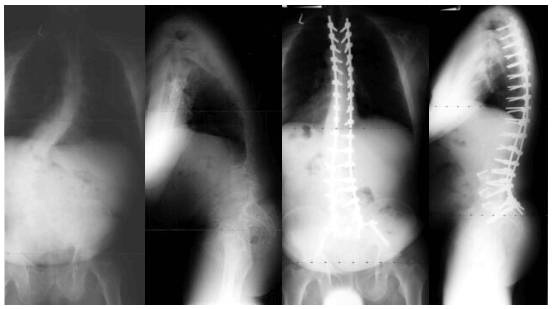Adult Neuromuscular Disease
Adult neuromuscular disease is a category that includes a number of different disease entities including Parkinson’s disease, multiple sclerosis, and various myopathies. These diseases often result in difficulties in the patient’s ability to walk and to carry themselves with upright posture and often are progressive resulting in worsening spinal deformities and may become debilitating.
The mainstay of treatment for these problems is often a combination of medication and physical therapy and, in some cases, bracing. A small percentage of these patients with progressive spinal deformity and difficulty maintaining posture are surgical.
Below is an example of a patient with Parkinson’s disease. These patients characteristically have difficulty standing upright and often progressive worsening of their posture. The before and after results are indicated in this 72-year-old woman with Parkinson’s disease who is wheelchair- bound and requiring narcotic medication prior to surgery. She had previously undergone lumbar laminectomies for spinal stenosis (narrowing of the spinal canal). She underwent extensive spinal reconstructive operation. She no longer required narcotic medications and was able to resume a more active lifestyle including driving her own vehicle.
Case Example #1

Case Example #2

This is a 54 year old gentleman with a history of Parkinson’s disease and progressive scoliosis and sagittal imbalance with corresponding severe back and leg pain. The patient underwent a combined anterior/posterior spinal reconstruction surgery. He did very well postoperatively and was able to finally return to his normal activity.
